By: Blessing Obialor. Freelance Health Writer and Datelinehealth Africa (DLHA) Volunteer, with medical review and editorial support from the DLHA Team.
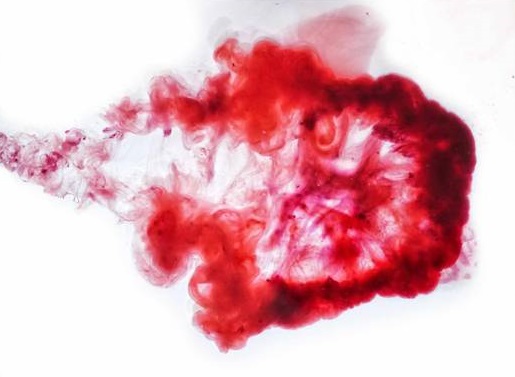
Image showing typical menstrual blood
Every woman deserves to know much about her menstrual cycle. This includes bodily changes, and questions bothering on health. Without information, most women are confused about important issues which invariably have an impact on their overall reproductive health. To be armed with information is to ensure that each season of your reproductive health is maximised to the fullest.
This presentation will answer common questions about the menstrual cycle including symptoms, duration, and issues about irregular periods, menstrual products and hygiene.

Three young african girls hanging out together
Menstruation is a series of activities that occur in the female reproductive system. It begins with the release of several follicles (eggs) from the ovary. One of these matures to await fertilisation. If this doesn’t occur, the unfertilised egg is released with a mix of blood, uterine mucousal tissue and vaginal secretions through the vagina.
Other names for menstruation include menses, or period. The process is controlled by major hormones namely estrogen, progesterone, follicle stimulating hormone and luteinizing hormone.
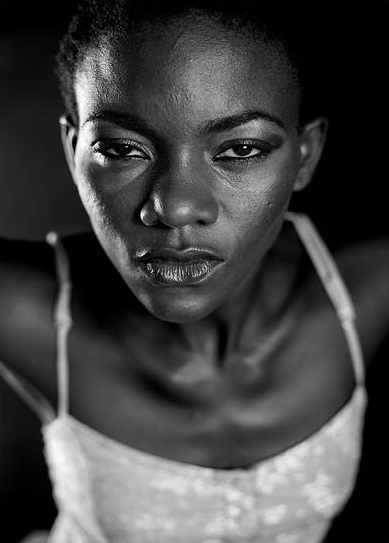
An adolescent African girl
As girls mature, their bodies undergo changes that indicate signaling the start of puberty, including the first menstrual period, known as. The first menstruation, also known as menarche typically happens between ages 101 and 14, with an average onset of 12 years. But I It can occur be later (16 and above) or earlier (from age 8).
Various factors like diet, family history, and genetics can influence the timing of menarche. For instance, girls who are active in sports or underweight often record late menarche.
Signs that menarche is approaching include breast development and the discharge of mucus-like secretion. Breast development typically precedes menarche by about 2 years. Hormonal changes around 6 months before menarche can lead to sticky, white or milky vaginal discharge, which is normal.
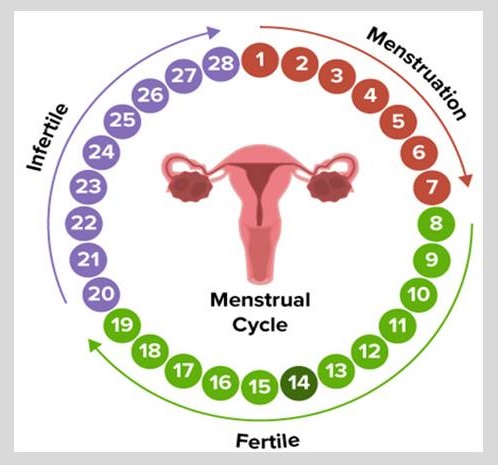
Image showing graphical representation of the menstrual cycle
A normal menstrual cycle lasts between 24 and 38 days, with menstruation typically lasting 2 to 7 days, with an average of 4 days.. Hormonal changes control menstruation, and factors like stress, weight changes, birth control, control, jetlag, diet, and sleep can affect its length. Each woman's body is unique, so menstrual periods can vary.

Calendar
Menstrual bleeding typically starts heavy for the first two days and then becomes lighter until the last day. This is normal, but variations in consistency can occur. Because menstrual bleeding is under the control of hormones, hormonal changes can also impact the menstrual cycle as a result of:
Heavy Menstrual Bleeding
It is difficult to categorise menstrual bleeding because most women have varied experiences as a result of their body chemistry. But a sign that you are experiencing heavy bleeding will be if it's accompanied by:
Light Menstrual Bleeding
Most women who complain about light menstrual flow record:

Black woman with menstrual cramp
From bloated tummy to tender breasts, every woman experiences unique menstrual symptoms. Common ones include:
Other symptoms include:
How to manage menstrual symptoms

Black couple in warm embrace in bed.
The simple answer is, yes it is OK to have sexual intercourse during menstruation. It may however be messy and accompanied by bleeding.
The orgasm that you get during sex may in fact help to reduce some of the early symptoms of menstruation like abdominal pains and cramps.
Be mindful that without the use of barrier protection and or birth control pills, you may still catch sexually transmitted diseases (STDs) or get pregnant.
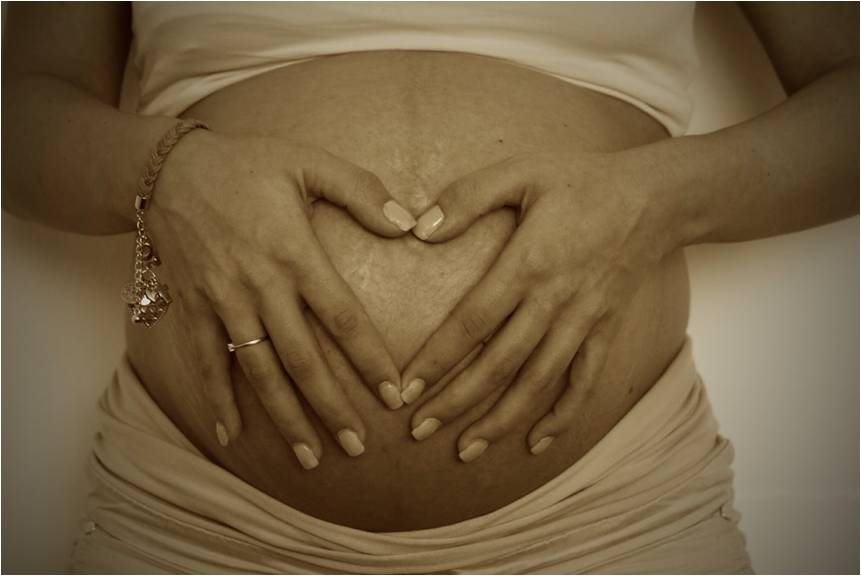
Pregnant black lady showing bulging tummy
The likelihood of getting pregnant during menstruation is quite low, but still possible in women with a short cycle. A good understanding of the menstrual cycle will help you understand this in more detail. Contributory factors include cycle length, sperm life span and ovulation timing.

Calendar
The general answer to this question is, No!
Irregular periods can be defined as periods that are late, early, or absent. Examples include cycles shorter than 21 days or longer than 35 days, missing three or more periods in a row, and abnormal flow.
Causes of irregular periods can be medical or lifestyle-related and include:
Some health conditions are limited to the reproductive system while others are related to general body health. Examples include:
Lifestyle Factors
Changes in lifestyle and normal routine have an impact on the menstrual cycle by impacting your hormonal levels thereby.
Examples are:
.jpg)
A black lady in swimming pool.
Menstruation doesn’t place any restrictions on your daily routine.
You can swim and exercise during your period. Also research has shown that low intensity exercises like swimming help reduce menstrual cramps. This is because during exercise your body releases some hormones called endorphins which serve as painkillers.
In order to enhance your confidence and level of comfort while swimming, you can make use of tampons. Avoid using panty liners and pads because they easily absorb water leading to leakage.
.jpg)
There are a variety of standard menstrual materials available in the market. There are three major types of products:
There are different types of pads made from various materials, some pads are disposable while some can be washed and reused.
Tampons are plug-like products made from cotton. Some come along with an applicator that helps you put in the tampon into the vagina to soak up menstrual blood.
Menstrual Cups
Menstrual cups are multiple or single use menstrual products. The cup is placed into the vagina where it collects menstrual blood. Reusable cups should be emptied and washed after each use.
There is no definite rule for the choice of menstrual product. Each product can serve based on your preference and affordability. Some believe that tampons are more comfortable than pads because they are hidden in the vagina. Others prefer using products they can use once and dispose of, instead of having to wash out menstrual blood. Tampons are not a good option for a woman with an IUD but serve well for swimming and other sports.

School age girls showing off gifted menstrual products
Maintaining menstrual hygiene is crucial for overall general and reproductive health. Menstruation comes with a lot of emotions and good personal hygiene can help reduce stress and manage pain during periods. Though the vagina is self cleaning, it is still important to pay attention to it to prevent harmful bacteria growth and unnecessary genital and urinary tract infections.
Below are some tips for better menstrual hygiene:
1. Obey the instructions written on a menstrual product when you use it.
2. Change your menstrual pad, cup or tampon according to the product guidelines. During menstruation, blood leaves the uterus and reaches the external genitalia where there is a mixture of blood, vaginal fluid, and bodily sweat, creating a damp environment that can harbor harmful germs. Change pads and tampons every 6 hours to prevent infections and toxic shock syndrome. Menstrual cups should be washed properly.
3. Keep your vaginal clean. Do not douche!
Avoid using chemical-based feminine hygiene products as they can disrupt the normal floral organisms of the vagina. Opt for warm water and mild soap to wash your vagina, moving from front to back to prevent the transfer of microorganisms from the anus.
4. Wear cotton pants
5. Dispose menstrual products properly
This is a very important consideration, don't dispose in the water system, instead incinerate your pads or better still wrap them before disposing.
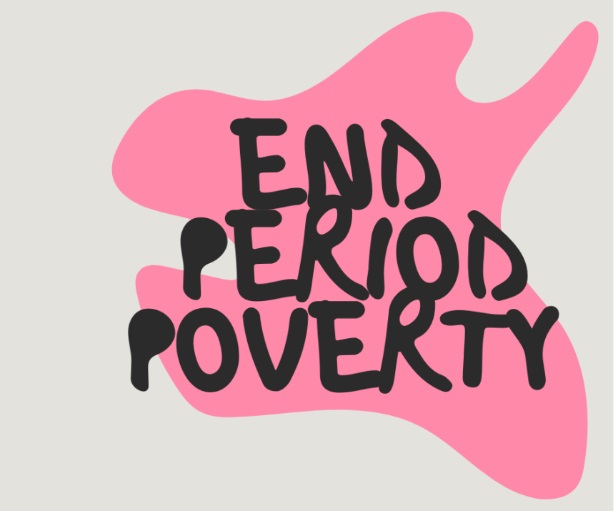
Advocacy to end period poverty
Period poverty is a term that describes a global public health challenge that has long been neglected. This condition is described as having insufficient access to menstrual products, education, and sanitation facilities.
According to the World Bank, approximately 500 million women and girls worldwide are touched by period poverty, but the scale of the problem is much higher in countries of the global south and most especially sub-Saharan African (SSA) countries.
The causes of period poverty in Africa are well known and include:
These causes promote poor menstrual hygiene management and numerous inequities affecting women and girls throughout SSA.
In East Africa for example, many women and girls are known to practice poor menstrual hygiene management through the use of unsanitary materials such as old fabric, leaves, mud, etc., to absorb or collect their period (menses). Also, many do not practice proper washing habits due to lack of access to clean water and bathroom privacy.
Across many SSA countries, over 30% of school age girls are known face isolation and miss school during their period. Older women and by extension their children also suffer economic, relationship and nutritional hardships because of cultural taboos that stigmatise and isolate these women during their period.
Your menstruation is a by-product of your menstrual cycle. It is one of several complex reproductive system activities going on in your body. Your menstrual cycle is regulated by several body hormones as well as other external factors. The more accurate and factual information that you have about your menstruation and menstrual cycle, the better you be empowered to enjoy a very healthy reproductive and sexual life free of myths, stigma and cultural taboos.
Knowledge is power. Talk with your healthcare provider to get answers to any additional questions that you may have about your menstrual and other reproductive and sexual health concerns.
Related:
Demystifying the Menstrual Cycle for African Women
Amenorrhea: Causes, Symptoms, Diagnosis and Treatment
Pelvic Inflammatory Disease in Africa: Causes and Symptoms
Endometriosis: What you need to know
Fibroids: What every African woman should know
Published: April 3, 2024
© 2024. Datelinehealth Africa Inc. All rights reserved.
Permission is given to copy, use and share content for non-commercial purposes without alteration or modification and subject to attribution as to source.
DATELINEHEALTH AFRICA INC., is a digital publisher for informational and educational purposes and does not offer personal medical care and advice. If you have a medical problem needing routine or emergency attention, call your doctor or local emergency services immediately, or visit the nearest emergency room or the nearest hospital. You should consult your professional healthcare provider before starting any nutrition, diet, exercise, fitness, medical or wellness program mentioned or referenced in the DatelinehealthAfrica website. Click here for more disclaimer notice.